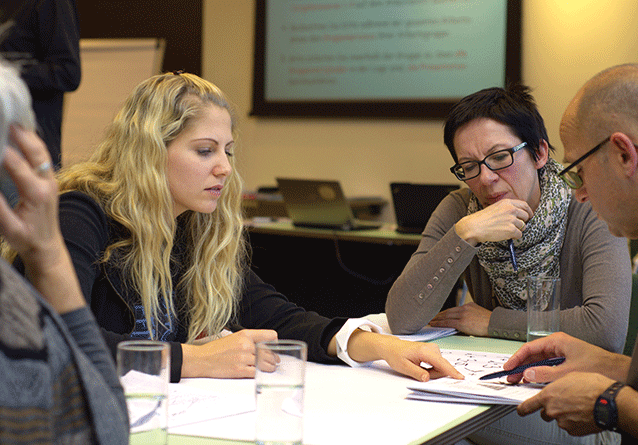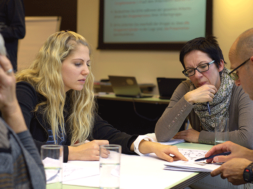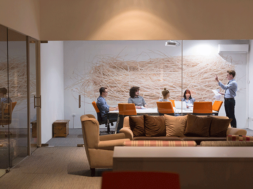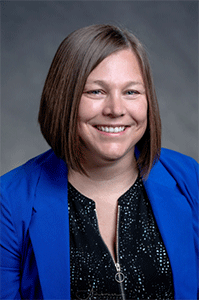
Morale Building at Pima Medical’s Colorado Springs Campus
By Tara Dailey, Regional Director of Operations, Pima Medical Institute
Pima Medical Institute has been providing its students with quality healthcare education since 1972. With an emphasis on hands-on learning, campus operations is at the heart of the more than 45-year success of the medical career college. Each campus must operate smoothly in order to provide the best setting for success. The key to that success is campus morale.
And, while campus morale is always important, the added strain of the COVID-19 pandemic and the workplace pivots that came along with that added an additional layer of stress for many.
Due to CDC guidelines, lockdowns, state regulations and more, much of Pima Medical’s faculty and staff, as most people around the world, found themselves in a new, remote or hybrid work environment without the day-to-day interaction they are accustomed to. For employees who have always worked on campus, that proved especially difficult. Despite all the changes, Pima Medical’s ultimate responsibility is to the students, doing whatever is needed to keep their environment positive and productive.
For the Colorado Springs campus specifically, it became obvious that employees were in need of some assistance adjusting to this new and ever-changing environment. As the campus director, I noticed there were areas for improvement in the way of working through communication barriers and lifting overall campus morale. The pandemic exacerbated the issues for some and leadership felt that tapping in to the college’s partnership with FranklinCovey would be an excellent way to increase morale and the overall happiness of the staff and students alike.
Pima Medical and FranklinCovey formed its partnership back in 2017, and through its work together, have created customized curriculum that helps students tackle important subjects like time management, maintaining focus, personal and professional motivation, leadership skills, developing relationships, confidence, self-discipline and much more.
Utilizing these tools for the employees of the Colorado Springs campus was determined to be the perfect platform tool to open conversations and provide the staff the opportunity to be the drivers of the solutions they were looking for. In order for the campus culture to see an overall improvement, it took buy-in from all employees. By them seeing the value and the need to work towards stronger, healthier relationships, the campus was much more likely to be successful in this endeavor.
Campus leadership began by focusing primarily on FranklinCovey’s Speed of Trust and Get Better practices. While Franklin Covey offers various platforms for each of these practices, Colorado Springs utilized decks of cards containing various pieces of information on important topics like interpersonal relationships and increased team morale. Each member of the campus staff and faculty received a deck of these cards. Leadership then used the topics within these decks to apply directly to the campus issues that needed to be addressed. For example, if an employee felt like there was a trust issue between themselves and a coworker, they would be given a “Talk Straight” card from the Speed of Trust. This card guides the employee with suggested approaches on phrases to use and how to make sure there is a healthy and effective conversation, not a confrontation. A “Develop Trust” card might be used for colleagues who needed to have tough conversations.
The card provides tips on how to navigate various “high-trust” behaviors that may have been damaged. In other words, if someone wanted to right a wrong with a coworker they would reference the card for ideas to start the conversation.
Speed of Trust helps people to learn to have courageous conversations, confront the issues respectfully and right wrongs for a more overall successful work environment. This is aimed at helping folks Get Better. For example, learning to “get better” includes a focus on “wearing glasses that work” and learning how to “carry your own weather.” In other words, it teaches people to reflect on their own opinions of others or situations and to look within to determine how/if they are allowing their attitude to be influenced by those around them or other outside sources.
The campus incorporated the Get Better modules to build upon the success and ongoing work with implicit biases. According to psychologists, implicit biases are unconscious attitudes and stereotypes that can manifest in various settings. There are many different examples, ranging from categories of race, gender and sexuality. Often these biases become apparent when trying to navigate overwhelming situations. Culture, media and personal history often play a significant role in development of these biases1. There are 15 Get Better practices, all focusing on looking within to evaluate the strength/effectiveness of relationships. Once people can openly look inward, it is often easier to identify areas of improvement. Many employees stated that they were able to not only improve relationships at work; they were able to improve their own mental health and those personal relationships outside the campus.
At the Colorado Springs campus, there was also a heavy focus on creating more transparency. Utilizing the FranklinCovey tools, faculty and staff were able to openly and respectfully discuss ways in which they are actively creating transparency and looking at ways to improve that process with one another. Each month a new topic was chosen as the focus and the exercises were completed through an all-campus meeting. Because of the pandemic, meetings were taken virtually, making clear and transparent communication even more important. Each employee then spent that next month working on that area with one another. It became commonplace on campus to reference the FranklinCovey learnings and use them as the basis for many conversations.
Another important topic that became a focus for the Colorado Springs campus was unconscious bias. The dictionary defines unconscious bias as “social stereotypes about certain groups of people that individuals form outside their own conscious awareness. Everyone holds unconscious beliefs about various social and identity groups, and these biases stem from one’s tendency to organize social worlds by categorizing.” FranklinCovey provides three modules of focus based on people’s inherent biases, the need to recognize those biases and the importance the behaviors have on employees. These biases have a direct impact on overall productivity and workplace success.
At the Colorado Springs campus, leadership took the time to identify biases ranging from overarching campus-wide issues all the way to individual relationships.
Campus leadership worked hard to cultivate connections to work through those biases and ultimately work through the issues, with honest and sometimes uncomfortable conversations. As the leadership team, it was imperative to lead by example and have the courage to continuously address individual bias and help others recognize them for themselves.
Leadership of the Colorado Springs campus began this initiative with the goal to improve morale and the overall effectiveness of the work being done for students. The campus team did not just meet those goals they exceeded them. Staff and faculty began operating at some of the highest efficiencies across all Pima Medical campuses. In addition, Colorado Springs boasts the highest employee satisfaction rate within the entire company.
More importantly, these steps have drastically improved the overall campus culture. Relationships are stronger and much more transparent. Coworkers are able to have meaningful conversations, with less miscommunication, and when an issue does arise, it is met with a productive approach, not one of confrontation. The team understands each other on a deeper level and respects each other’s work, in ways that had not been evident in the past. This approach has been extremely beneficial for students as well. Pima Medical’s instructors are well versed in the teachings and language of FranklinCovey and can more easily deliver content, as well as utilize the lessons learned within the student teacher relationship.
One of the most fulfilling outcomes has been the positive feedback received from faculty and staff. Faculty and staff say they have enjoyed the personal retrospection and the ability to learn how to work through issues in a more respectful and meaningful way. Not only can strained relationships negatively affect their job, but also their mental health and relationships outside the campus walls. With those barriers removed, they are much more energized and effective with the task of educating our students!
Pima Medical Institute is an employee-owned, private, accredited school dedicated to providing students classroom studies paired with real-world training at medical facilities. Established in 1972, Pima Medical Institute helps students become career ready, focusing exclusively on healthcare professions, including medical, dental, veterinary and nursing fields. Curriculum includes certificate, associate degree, bachelor’s degree and master’s degree programs.
The Colorado Springs campus has been serving the greater Colorado Springs market since 2002. The campus features advanced dental assisting and veterinary technician labs. The campus is also proud to serve its many students who are military members and their spouses stationed in the area. For more information go to pmi.edu.
References
TARA DAILEY is a Regional Director of Operations at Pima Medical Institute. She has been with the medical career college for more than 12 years, most recently as Campus Director of the Colorado Springs campus. While leading the Colorado Springs campus, Dailey and her team earned co-Campus of the Year in 2019. Dailey was also named Campus Director of the Year during her tenure.
Dailey began her career with Pima Medical as an Admissions Assistant at the Albuquerque campus. She went on to serve as the Career Services Coordinator and Associate Campus Director before moving to Colorado Springs with her family for her Campus Director role.
Originally from Seattle, Washington, Dailey earned her Master of Business Administration from Grand Canyon University and a Bachelor of Arts in Communication from the University of Puget Sound.
Contact Information: Diane Smith // PR and Communications Manager // Pima Medical Institute // 480-320-02142 // dismith@pmi.edu // pmi.edu











